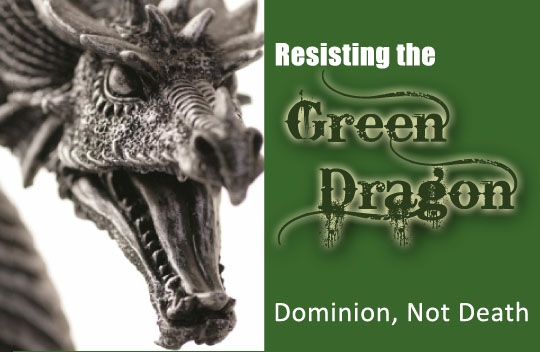“Environmentalism is a form of pagan fundamentalism. These green wackos are fanatics like al-Quaida. Just like them.” — G. Gordon Liddy
What’s in a name?
This past weekend, my father asked me why Christians don’t like Pagans. I think this may have been the first time he has ever asked my anything about Paganism, so it was significant for me. I explained that there is a fundamental difference of worldview between the transcendental monotheisms and religions of immanence like contemporary Paganism, and that Christians tend to see the Pagan reverence for the earth as idolatry.
But I also told him that I suspected that, when Christians talked about “pagans” (small-p), most of the time they probably were not referring to Contemporary “Pagans” (captial-P), at all, but a kind of straw man or boogeyman. “Pagan” is just one of those words that many people don’t really know what it means, but think of as “bad” in a vague sort of way
“If I’m a pagan of the good times
My lover’s the sunlight
To keep the Goddess on my side
She demands a sacrifice”— “Take me to Church”, popular song by Hozier
The word “pagan” is kind of like the word “cult”. I remember, when I was a Mormon missionary in Brazil, people would ask if Mormonism was a “cult”. We always responded by asking them what they meant by “cult”, and they would predictably answer with something vague involving Satan, which we could easily disavow. Of course, in a sociological sense, Mormonism (like Paganism) is a “cult” — in that it is a new religious movement that arose spontaneously around novel beliefs and practices, as opposed to a “sect” which results from religious schism and maintains greater continuity with traditional beliefs and practices. But that this not what people usually mean when they say “cult”, so Mormons (and Pagans) can honestly deny cult status.
“Pagan” is another word like that. In common parlance, it can mean anything from atheism to polytheism, from impiety to idolatry. But unlike the “cult” label, we Pagans have consciously embraced this term of opprobrium. We seek to reclaim it, to reinvest it with positive meaning. Some of us do this to honor the pagan gods and revive their worship. Others, like me, choose this name because it challenges many people’s deep-seated assumptions about the world — like the assumption that assumption that religion has to be about rejecting the physical world and fecund nature, our fleshy bodies and sexuality, and our place in the natural cycle of life and death. But, of course, there is a trade-off. When we choose to reclaim terms like “Pagan” and “witch”, we must accept the fact that, despite our best efforts, we will perpetually be misunderstood, and that our name will continue to be taken by some as prima facie evidence of our depraved nature.
But until recently, it had not occurred to me that this choice of religious labels might actually be an obstacle to our own goals.

The pagan slur
I recently wrote an essay at HumanisticPaganism.com making a case for Pagan p…p…p…proselytizing. My point was not that earth-centered Pagans need to try to convert people to Paganism, but that we need to share with people the Pagan perspective that we are an interconnected part of this earth. In the comments and elsewhere, the question was raised by several people whether explicitly linking environmentalism to Paganism is a good strategy, since it gives anti-Green Christians more fodder against the environmental movement.
Jason Pitzl-Waters recently observed on the occasion of the last Earth Day that “environmentalism is often slurred with the epithet of ‘pagan’ by some political conservatives.” A simple Google search quickly reveals that many conservative Christians are using the “pagan” label to try to dissuade people from association with environmentalism [see multiple embedded links]. If being “pagan” is ipso facto bad, and environmentalism is a form of “paganism”, then they reason that environmentalism must be bad. One example which was brought to my attention is the documentary, Resisting the Green Dragon, which portrays environmentalism as dangerous “pagan” idolatry and warns Christians to avoid it like the Devil. It is for this reason that many environmentalists feel that the movement should remain as secular as possible.
It is probable that the people who are slurring environmentalism in this way are already convinced that environmentalism is a bad thing, and the association with “paganism” is a post hoc rationalization. But what about more liberal Christians, who might be sympathetic to earth stewardship, but would be put off by associations with contemporary Paganism? Do we scare away more people from the environmental movement than we bring to it? Is the net effect of our association with the environmental movement negative?
Hiding our (Pagan) candles under a bushel?
An even harder question, I think, is whether it matters who we are scaring away. If you believe, like I do, that a model of environmentalism build on “earth stewardship” is an inadequate response to our present ecological problems, then the question becomes whether it matters that we might scare away some pro-Green Christians. For many Pagans, myself included, the transformation of our relationship to the environment is intertwined with challenging many of the assumptions of traditional Christianity and other monotheisms — especially metaphysical dualism and anthropocentrism.
I’m not saying that these paradigms cannot be challenged from within Christianity. Examples might include Matthew Fox’s “Creation Spirituality”, Michael Dowd’s “Evolutionary Evangelism”, John Cobb, Jr.’s “Earthist Christianity”, and Sallie McFague’s “Ecological Theology”. But I believe that contemporary earth-centered Paganism brings a unique perspective and unique resources to the problem of our relationship to the environment. Undoubtedly, if the environmental agenda is to succeed, it will be accomplished through compromise between political and religious strangers. But does that mean we Pagans should go back in the closet for the sake of political success? Seeking the political middle might make good politics, but I think it makes bad religion. Changing our relationship is to the environment is, after all, not just a political task, but a spiritual and religious task as well.
Not long before I left the Mormon church, I noticed a movement in the church hierarchy to downplay the more radical aspects of Mormon theology and history in an effort to become more mainstream. As I see it, what culminated in Mitt Romney’s 2012 presidential campaign began with the 1996 60 Minutes interview of the Mormon prophet and president, Gordon B. Hinckley (which I watched from Brazil) in which Hinkley insisted “We’re not a weird people.” (At least until then, Mormons had cultivated a perception of themselves as a “peculiar people”.) While I no longer believe in Mormon doctrine, I still lament any effort to dilute Mormonism’s theological distinctiveness. I worry that the environmental movement is making the same mistake, trading its radicalism for respectability. Perhaps our job as Pagans is to keep the environmental movement weird (double entendre intended).
What do you think? Do we hurt the environmentalist movement by validating associations of environmentalism with “paganism”? Should we care? Let me know what you think in the comments below.















